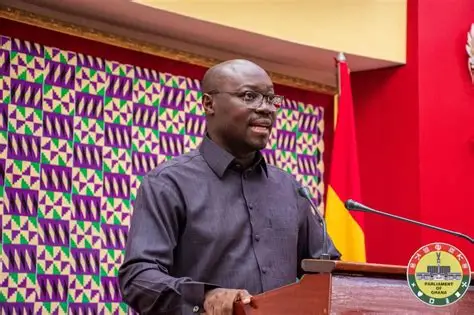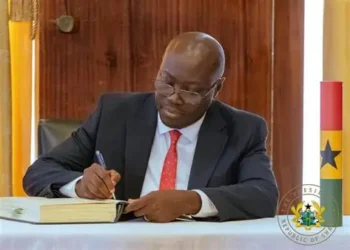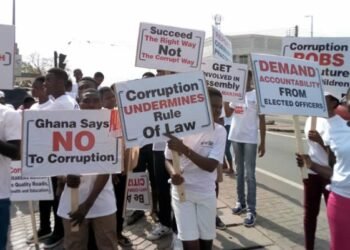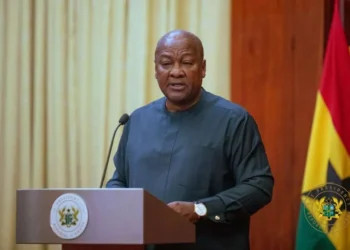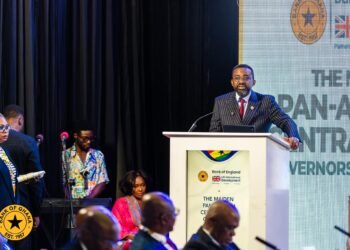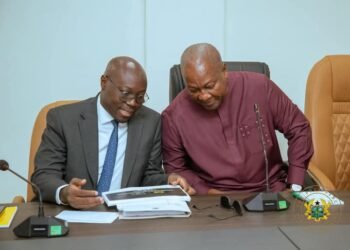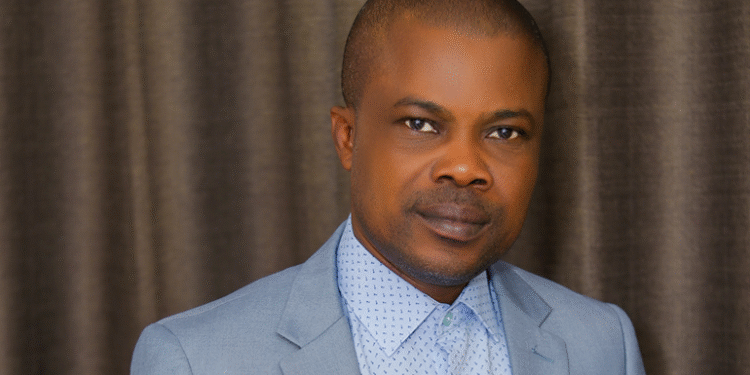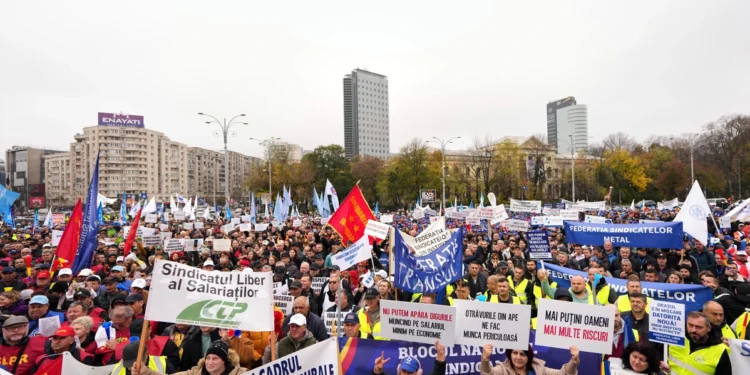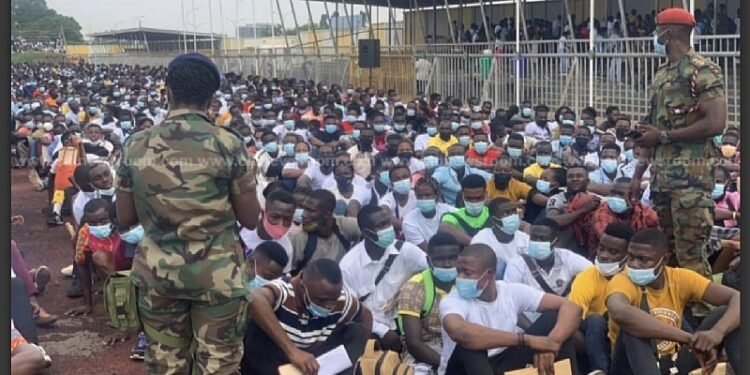Ahead of the 2026 Budget Statement and Economic Policy to be read in Parliament on Thursday, November 13, 2025, there are growing expectations within the energy sector and among traders.
These expectations revolve around the impact of currently implemented policies, intended policy implementations, and assurances on issues they hold important to the growth and expansion of the sector and businesses.
While growth and stability are evident in the country, there still linger questions of impact, influence, accountability, transparency, sustenance, and further expansion of the economy of Ghana.
The Minister of Finance, Dr. Cassiel Ato Forson, recently engaged with traders at Takoradi’s Market Circle as part of the government’s broader stakeholder consultations in a bid to fulfill and represent the realities, hopes, and expectations of all Ghanaians in the 2026 Budget. He described the experience as “humbling and inspiring,” as he received raw feedback on the Ghanaian economy from the traders.
“It was clear that our efforts to stabilize the economy are beginning to bear fruit. Many spoke of easing prices, renewed confidence, and a growing sense that the tide is finally turning in their favor.”
Dr. Cassiel Ato Forson, Minister of Finance
The Ministry has expressed its willingness to listen to all, as much as possible, for the 2026 Budget to meet the interests of all the sectors of the economy.
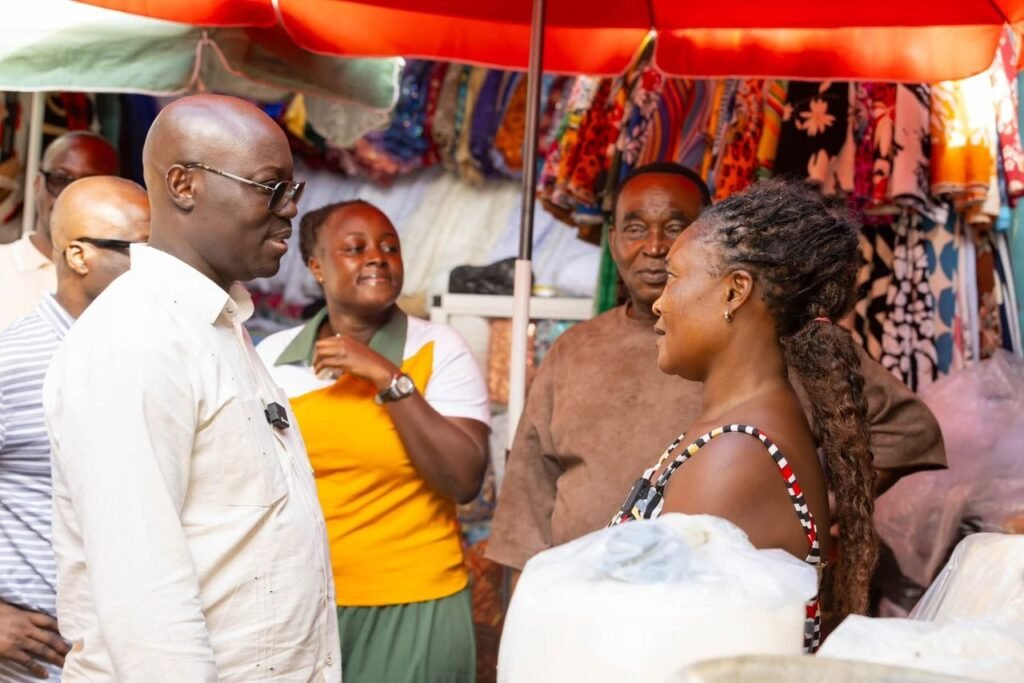
Energy Sector Demands Accountability on GH₵1 Fuel Levy
One of the key sectors of the Ghanaian economy, which many, including the IMF and World Bank, believe to be a major driver of economic growth and sustainability, is the Energy sector.

Efforts to revive the energy sector led the government to introduce a GH₵1 fuel levy. With the stabilized and appreciated currency, as well as fuel price reduction, the government planned to deduct GH₵1 from every fuel purchased while still leaving Ghanaians better off than in the period of high fuel prices and depreciating currency.
The Ghana Revenue Authority (GRA) directed Oil Marketing Companies (OMCs) to charge the GH₵1-per-litre Energy Sector Shortfall and Debt Repayment Levy on refined petroleum products. The purpose was to raise additional revenue for the sector to pay for fuel purchases for the thermal power plants and clear unsettled debts.
After a series of postponements, the levy took effect on July 16, 2025, after announcement by the GRA as part of the Energy Sector Levies (Amendment) Act, 2025.

Three months down the line, energy sector stakeholders are calling for transparency and accountability on the GH₵1 fuel levy and the persistent revenue and supply shortfalls.
The Executive Secretary of the Chamber of Petroleum Consumers (COPEC), Duncan Amoah, has called for an update of the levy and the second processing plant in the 2026 Budget Statement to strengthen the sector.
“So far, the economy seems to have been able to adjust to accommodate (the levy). Whatever needs to be done to consolidate it, we will want to see it consolidated. Whatever it is, the tax will also need to be accounted for, and we expect that the Finance Minister will capture it in the budget equally.
“Whatever the Finance Minister has towards getting the train II on stream to complement the current gas processor at Atuabo, we will be happy to hear that equally because it saves this economy a lot.”
Duncan Amoah, Executive Secretary, COPEC
Reducing the Sectoral Losses
The stability of the Ghana Cedi and favorable international market prices have aided fuel prices drop at the downstream sector in November. As a result, the Executive Director of the Center for Environmental Management and Sustainable Energy (CEMSE), Benjamin Nsiah, calls for the government to protect the currency’s stability to sustain the low fuel prices at the pump.

Mr. Nsiah again counseled the government to implement policies to close revenue gaps in the energy sector.
“The data has shown that revenue mobilization has improved under this government by ECG, but we think that system losses are still high, and through such a partnership, we will be able to curtail or manage these higher system losses and ensure that there is a certain financial discipline and operational discipline at ECG. We expect to hear much on the private sector participation.”
Benjamin Nsiah, Executive Director, CEMSE
According to Mr. Nsiah, Ghana must “review our regulatory and licensing requirements to ensure that there are medium operators within the space so that they can scale up production for us to meet the revenue target that we have projected for our budget from 2025-2030.”
The concerns of the energy sector and the traders at the Takoradi market are expected to be addressed on Thursday. All eyes are on the Minister of Finance, Dr. Cassiel Ato Forson, as he presents the 2026 budget statement to the Ghanaian populace.
READ ALSO: Dr. Ofori Advocates Innovation, Cooperation for Africa’s Energy Future

